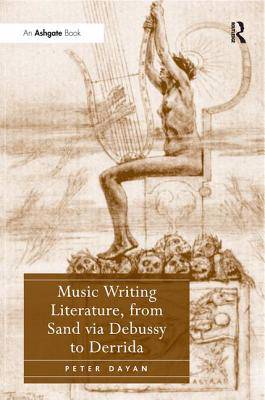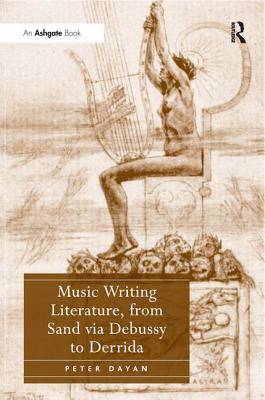
Bedankt voor het vertrouwen het afgelopen jaar! Om jou te bedanken bieden we GRATIS verzending (in België) aan op alles gedurende de hele maand januari.
- Afhalen na 1 uur in een winkel met voorraad
- In januari gratis thuislevering in België
- Ruim aanbod met 7 miljoen producten
Bedankt voor het vertrouwen het afgelopen jaar! Om jou te bedanken bieden we GRATIS verzending (in België) aan op alles gedurende de hele maand januari.
- Afhalen na 1 uur in een winkel met voorraad
- In januari gratis thuislevering in België
- Ruim aanbod met 7 miljoen producten
Zoeken
€ 106,95
+ 213 punten
Uitvoering
Omschrijving
Why does poetry appeal to music? Can music be said to communicate, as language does? What, between music and poetry, is it possible to translate? These fundamental questions have remained obstinately difficult, despite the recent burgeoning of word and music studies. Peter Dayan contends that the reasons for this difficulty were worked out with extraordinary rigour and consistency in a French literary tradition, echoed by composers such as Berlioz and Debussy, which stretches from Sand to Derrida. Their writing shows how it is both necessary and futile to look for music in poetry, or for poetry in music: necessary, because each art defines itself by reference to what it is not, and cannot be, in order to point to an idealized totality outside itself; futile, because the musicality of poetry, like the poetic meaning of music, must remain as elusive as that idealized totality; its distance is the very condition of the art. Thus is generated a subtle but unmistakable general definition of the nature of art which has proved uniquely able to survive all the probings of poststructuralism. That definition of art is inseparable from a disturbingly effective scepticism towards all forms of explication and explanation in critical discourse, so it is doubtless not surprising that critics in general have done their best to ignore it. But by bringing out what Sand, Baudelaire, Mallarmé, Proust, Debussy, Berlioz, Barthes, and Derrida all do in the same way as they work on the limits of the analogy between music and literature, this book shows how it is possible, productive, illuminating, and fascinating to work on those limits; though to do so, as we find repeatedly, in Chopin's dreams as in Derrida's 'tombeaux', requires us to have the courage to face, in music, our literal death, and the limits of our intelligence.
Specificaties
Betrokkenen
- Auteur(s):
- Uitgeverij:
Inhoud
- Aantal bladzijden:
- 156
- Taal:
- Engels
Eigenschappen
- Productcode (EAN):
- 9781138262874
- Verschijningsdatum:
- 15/11/2016
- Uitvoering:
- Paperback
- Formaat:
- Trade paperback (VS)
- Afmetingen:
- 156 mm x 234 mm
- Gewicht:
- 226 g

Alleen bij Standaard Boekhandel
+ 213 punten op je klantenkaart van Standaard Boekhandel
Beoordelingen
We publiceren alleen reviews die voldoen aan de voorwaarden voor reviews. Bekijk onze voorwaarden voor reviews.









